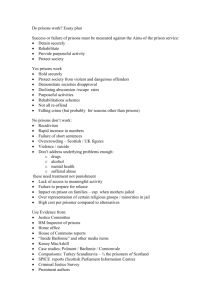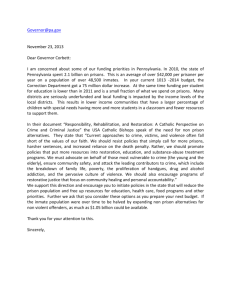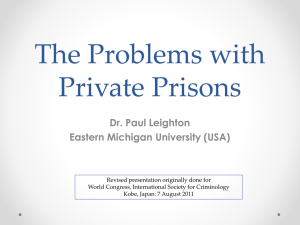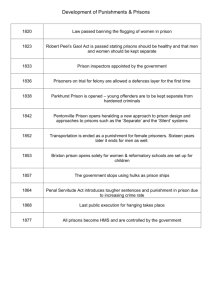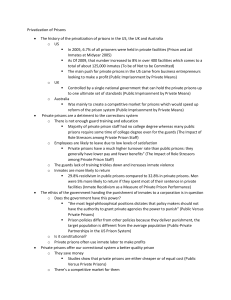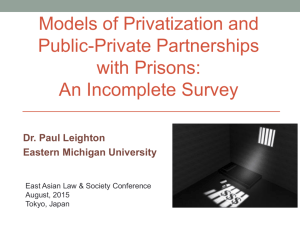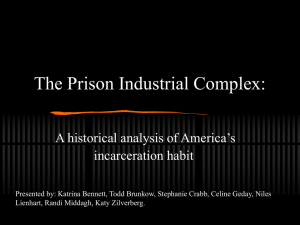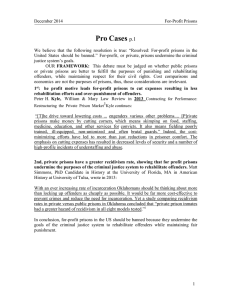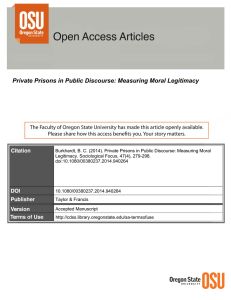01-159438-0494
advertisement
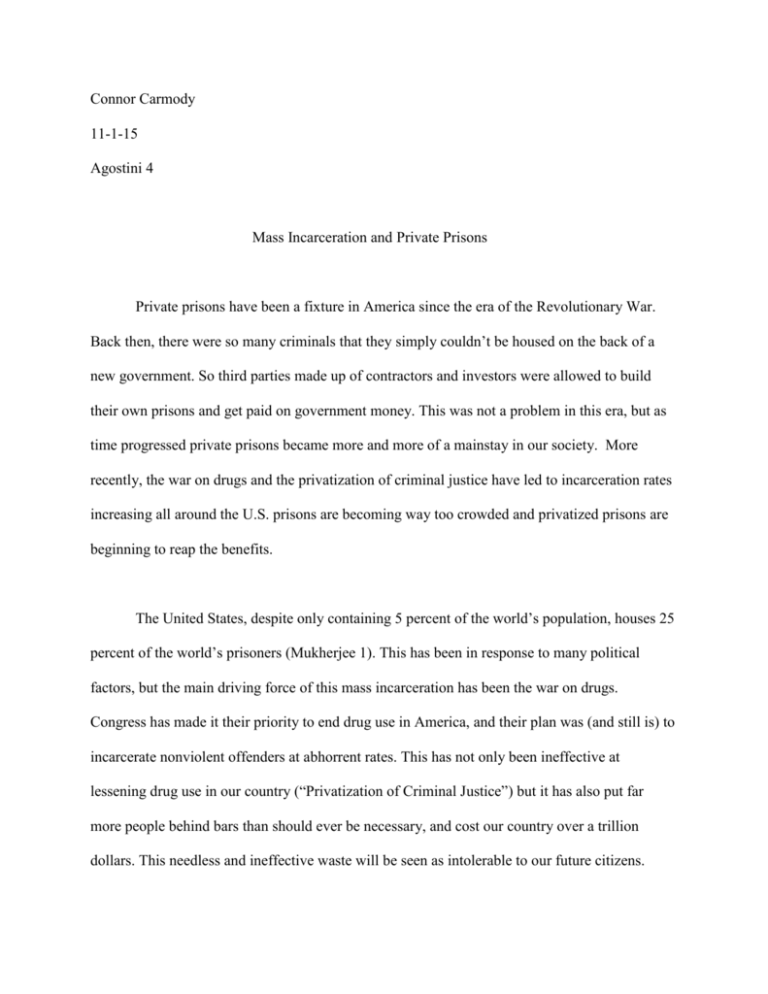
Connor Carmody 11-1-15 Agostini 4 Mass Incarceration and Private Prisons Private prisons have been a fixture in America since the era of the Revolutionary War. Back then, there were so many criminals that they simply couldn’t be housed on the back of a new government. So third parties made up of contractors and investors were allowed to build their own prisons and get paid on government money. This was not a problem in this era, but as time progressed private prisons became more and more of a mainstay in our society. More recently, the war on drugs and the privatization of criminal justice have led to incarceration rates increasing all around the U.S. prisons are becoming way too crowded and privatized prisons are beginning to reap the benefits. The United States, despite only containing 5 percent of the world’s population, houses 25 percent of the world’s prisoners (Mukherjee 1). This has been in response to many political factors, but the main driving force of this mass incarceration has been the war on drugs. Congress has made it their priority to end drug use in America, and their plan was (and still is) to incarcerate nonviolent offenders at abhorrent rates. This has not only been ineffective at lessening drug use in our country (“Privatization of Criminal Justice”) but it has also put far more people behind bars than should ever be necessary, and cost our country over a trillion dollars. This needless and ineffective waste will be seen as intolerable to our future citizens. Unfairly incarcerating American citizens as a result of the war on drugs or private prison lobbying is the tip of the iceberg. Inmates are randomly assigned to prisons, and those unlucky enough to be thrown into a private prison will be faced with some of the worst conditions imaginable. Private prisons will ignore patients in desperate need of medical attention. Prisoners are often beaten by guards and other inmates, and there can sometimes be as little as one guard for fifty or sixty inmates. An inmate in a Mississippi private prison was trying to cut himself with a small, dull object and had a long rope around his neck, but the prison psychiatrist deliberately ignored him (Kizzier 1). Often times, the only way for a prisoner to get help is to set his cell on fire. The fact that this happens to human beings for the sake of profit is completely appalling to me. These prisons are justified by their owners because they help the U.S. Government save money by not having to build to the higher standards that a public prison has. But often, the private prisons miscalculate their costs and end up costing even more money than a public prison. As for the events that take place within their walls, there are no justifications, the private prisons simply try to keep this information from reaching the public (aclu.org). The American people of today can come to accept this because most of them are not even aware that these atrocities are occurring. The actions that one can take today to correct this abomination in our society is to get the word out about ending private prison contracts. The private prisons were originally instituted to save taxpayer money, so as a taxpayer you have a say in how the money is appropriated. Speak out to your representatives and make the issue known. By working together, we can end the scourge of mass incarceration. Works Cited "SPLC Court Filing Details Barbaric Conditions at Private Prison in Mississippi." By Jaime Kizzire. Southern Poverty Law Center. Web. 23 Oct. 2015. "Do Private Prisons Distort Justice? Evidence on Time Served and Recidivism." By Anita Mukherjee. Web. 23 Oct. 2015. "Privatization of Criminal Justice." American Civil Liberties Union. Web. 23 Oct. 2015.
